2017 | Generation
Framed with Great Care
Of motor-mouth treasure hunters, a genuine Berlin brat and a Buddhist master still small in stature. In this extensive interview, section head Maryanne Redpath provides an in-depth preview of this year’s Generation programme and shares her admiration for the featured filmmakers’ unforced approaches to their young protagonists.
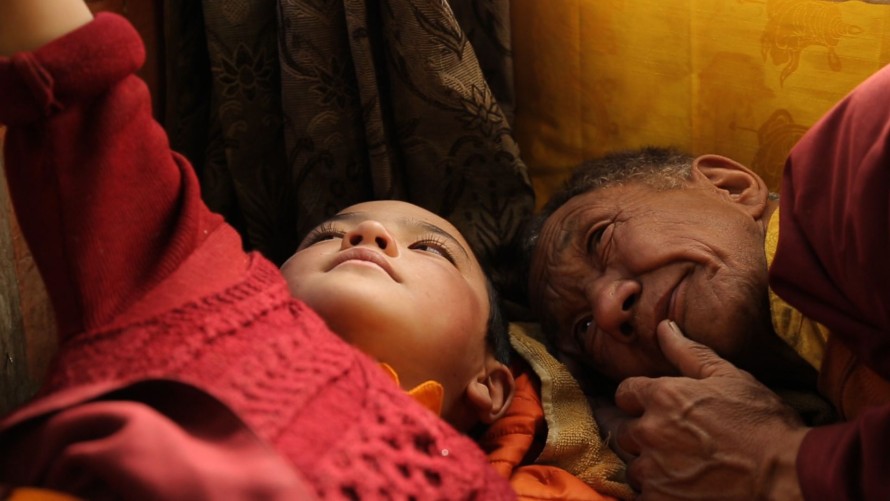
Becoming Who I Was by Chang-Yong Moon and Jin Jeon
In 2017 Generation is celebrating 40 years of programming films for young cinemagoers at the Berlinale. What have been the most notable changes over the years?
The introduction of the dedicated 14plus competition at the 2004 edition of the Berlinale represented a significant development for the section – which occurred thanks to the initiative of Festival Director Dieter Kosslick, who was new to the position at the time. Since 2006, the section has united the competitions Kplus and 14plus under the title Generation and our audience has far more than doubled. With this evolution, we have created a one-of-a-kind programme for viewers aged 14 and up, while increasing the recognition of this young audience as a target group for marketing strategies. In both competitions, Kplus and 14plus, the number of films that are not explicitly intended for a young audience has traditionally been high and some filmmakers still react sceptically at first when they receive an invitation to screen their films within the scope of the Generation programme. For this reason, we have made an effort to maintain close contact with the industry for years through the European Film Market. This work has paid off and the willingness to open up to a younger audience has been on the rise. The industry is also in the midst of a development process in this regard. However, I would also like to take the opportunity to call attention to all the great children’s and family films that I program every year with the greatest pleasure.
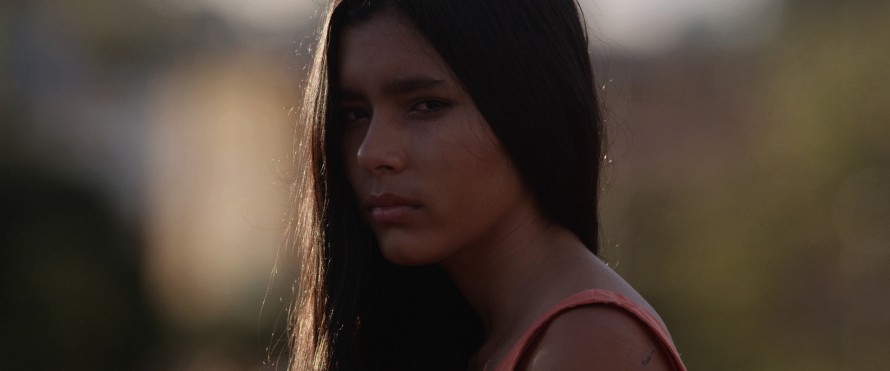
Adeli Gonzales in Não devore meu coração! (Don't Swallow My Heart, Alligator Girl!) by Felipe Bragança
Well, of course the audience is socialised and interconnected in a totally different way nowadays. There is a very high degree of internet affinity for many of the viewers of the Generation programme. That hasn’t had any effect on their enthusiasm for cinema and in my opinion it is not the case that movies are exclusively consumed by young people in isolation in their own rooms today. Young viewers love going to movie theatres and they enjoy the shared experience to be had there. They participate actively in the conversations following the screenings.
Their reactions to the films are dependent on one hand on the content, but also on formal aspects too. This can also be seen in the responses to the questionnaires that we hand out after every screening. The intensity of the audience’s personal interaction with the programme is probably higher for Generation than it is for any other section at the Berlinale. Our youngest viewers are just four-years-old. They grow up with the section, they look forward every year to being able to see the films in the next higher recommended age bracket and they size up where they are at in life with the aid of that which they’ve seen. The programme offers an incredible range of points of reference and potential for identification. Seeing characters in similar life situations on screen in particular can serve as a catalyst for younger audience members to open themselves up to their peers, friends or family. Providing an impetus for such potential dialogue is one of Generation’s central missions.
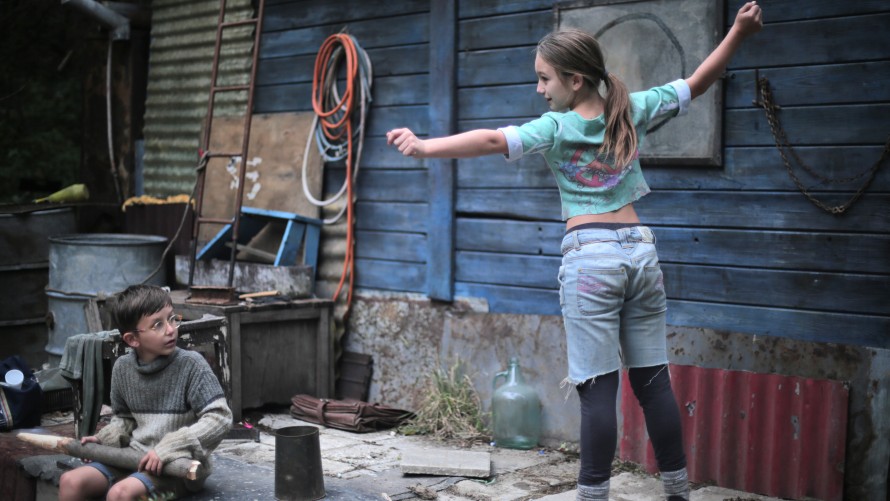
Piata loď (Little Harbour) by Iveta Grófová
How do you personally account for the high quantity of debut films featured in the programme?
I think it’s a coincidence. We look for films that are associated thematically or formally with the experiential worlds of children or adolescents and – most of the time – are experienced from the perspective of their young protagonists. Films with a nostalgic or glorifying tenor are generally not of interest for the programme. It does happen occasionally that relatively young first-time filmmakers still possess a special connection to their own childhood or adolescence that is reflected in the films – a fresh perspective, which is the result of the development of an individual visual and formal language. Generation also features a great number of experienced filmmakers, who are able to find a very unforced sort of approach to their protagonists and manage to create a protective space while filming, which allows the protagonists to be themselves. I find it really remarkable this year how natural the young actors are in front of the camera, regardless of whether it is a debut film or fictional or documentary material.
In Piata loď (Little Harbour, D: Iveta Grófová, Kplus), a Slovak-Czech co-production, two neighbourhood kids, still very little themselves at the ages of eight and ten, take two abandoned infants into their care. They look after the twins and give them tons of affection, taking on a huge amount of responsibility and in the process escaping from their own dysfunctional family relationships. Especially regarding the film’s surreal ending, where an imagined ship arrives to rescue the two children from their overwhelming fates, I think it’s incredibly impressive how natural the interaction between the characters appears.
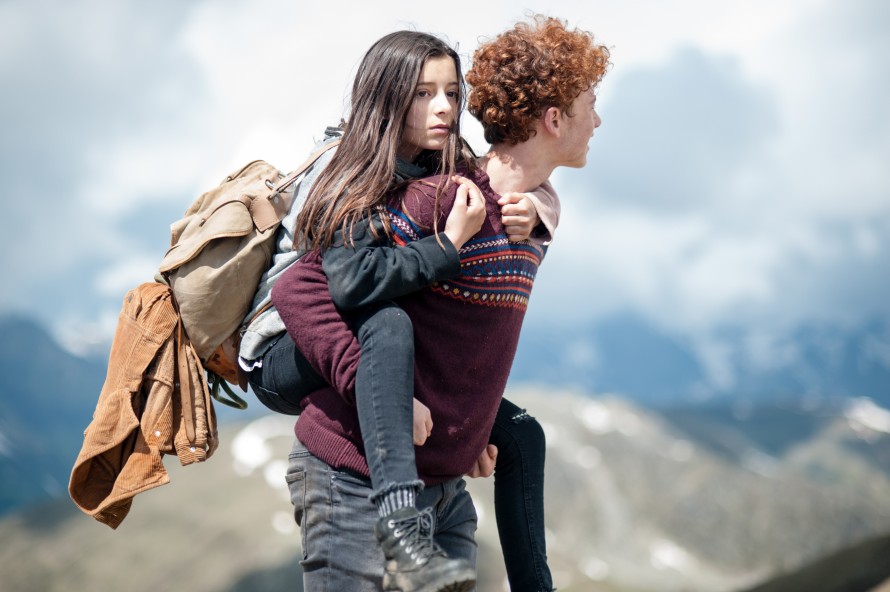
Mia Kasalo and Samuel Girardi in Amelie rennt (Mountain Miracle – An Unexpected Friendship) by Tobias Wiemann
This naturalness is also present in the dialogue of many of the films – for instance, in Tesoros by María Novaro, which we recommend for children aged seven and up. The sandy beaches and mangrove forests of the Mexican Pacific coast serve as the classroom for the children that live there. Together a group of friends sets out to dig up an old pirate treasure. They jabber away non-stop the whole time. It’s impossible to catch every word they say, but that’s precisely what makes the film so evocative and intimate. The dialogue here seems to be heavily improvised, an impression that is heightened by the documentary-like visual language. In Amelie rennt (Mountain Miracle – An Unexpected Friendship, D: Tobias Wiemann, Kplus) on the other hand, the fine art of screenplay writing is on display in the film’s dialogue. This German fiction feature tells the story of a genuine Berliner brat. Due to her nasty asthma, Amelie is sent away against her will to convalesce in South Tyrol. She’s really got that famed blunt Berlin attitude in spades, cursing constantly, and she finally opts to make a break. During her escape through the mountains, she runs into a boy who subsequently becomes her travelling companion. The way the two of them speak doesn’t come across at all as if it were dictated by a script.
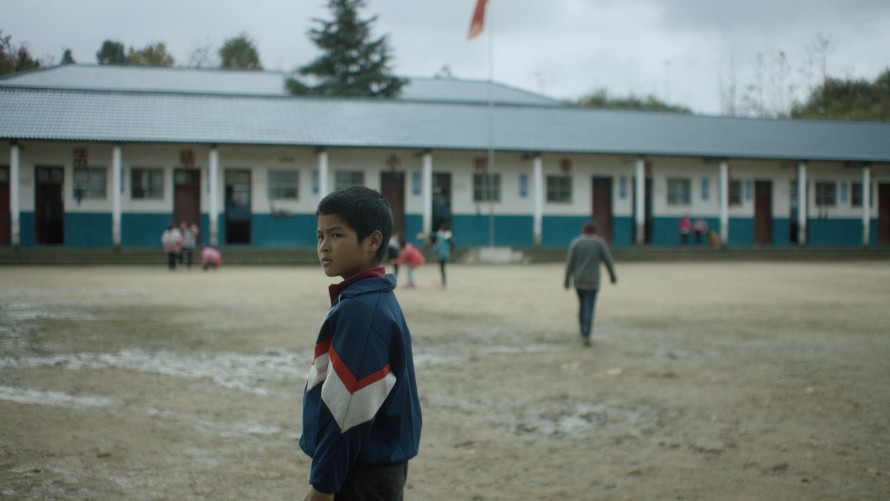
Shi Tou (Steinkopf) by Zhao Xiang
Brazilian director Fabio Meira must have also been blessed with a special gift during shooting; at any rate his film As duas Irenes (Two Irenes, Kplus) gives one the impression that his cast felt they were in sure hands. By chance, 13-year-old Irene discovers that there is a second Irene, also 13, living in her hometown. The two girls strike up a friendship, get to know each other’s worlds, go to the movies and arrange first dates with boys. I think it’s remarkable how the film is able to capture the feeling of this special age on the threshold between childhood and adolescence.
In his debut film Shi Tou (Stonehead, Kplus), Zhao Xiang also takes great care in establishing the framework within which his protagonists operate. The Chinese film tells the clever and moving story of “Stonehead”, a ten-year-old boy whose parents are migrant labourers, which has left him to grow up with his grandparents out in the countryside. A situation that very many children in China are exposed to and one which plays a role in four separate films in this year’s programme. In Ben Niao (The Foolish Bird, D: Huang Ji, Ryuji Otsuka, 14plus) the protagonist is already 16 and in danger of travelling down the wrong path. She has taken to dealing in stolen cell phones. To please her absent mother, she applies at the same time for admission to the local police academy – the film portrays her inner struggle with a high degree of intelligence and empathy.
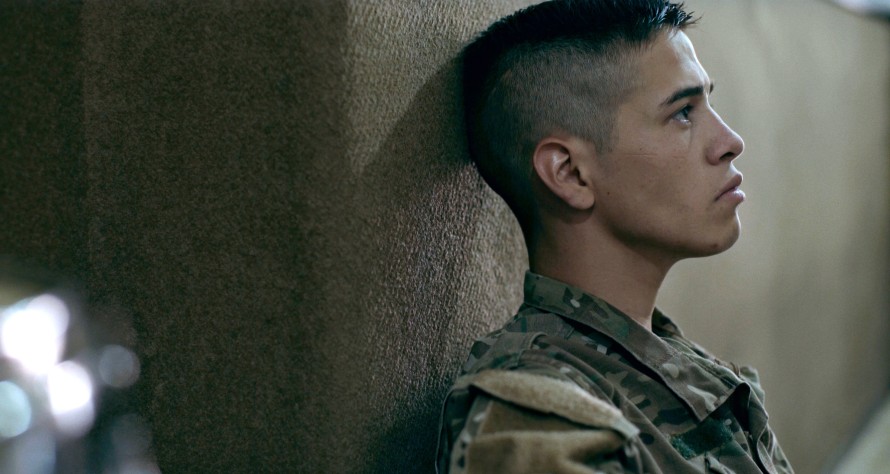
Soldado (Soldier) by Manuel Abramovich
Occupations and Callings
Entry into professional life is the subject of several films in the programme for 14plus. I’m thinking of Soldado, Almost Heaven, Królewicz Olch, Loving Lorna…
Soldado (Soldier, D: Manuel Abramovich, 14plus) is a calm documentary film from Argentina about a young man serving in the military. It shows the tension that the protagonist finds himself in – between tough drills and fragile vulnerability. The documentary film Almost Heaven (D: Carol Salter, 14plus) approaches its protagonist very respectfully for its part too, giving nuances a chance to express themselves here as well. British director Carol Salter accompanied a young woman during her training to become a mortician at one of China’s largest funeral institutes. She also lives far away from her family. The young woman learns how to wash corpses and to prepare for the ceremonies where bereaved friends and family members bid farewell to the deceased. The film shows both her reservations at participating in the intimate moments of these final farewells and the playful joking that occurs between her and her colleagues – a very intimate, sensitive portrait and a socially critical film at the same time.
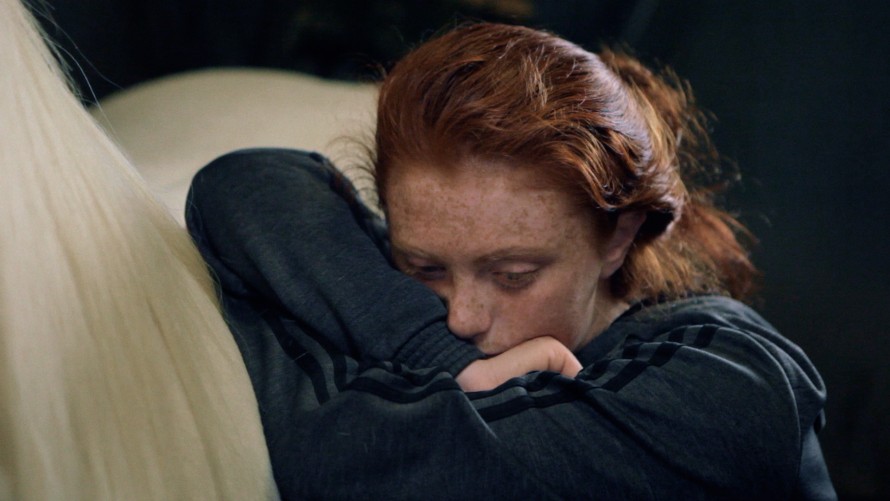
Loving Lorna by Annika Karlsson and Jessica Karlsson
For the other titles you mentioned, I would say it is less a matter of occupation and more a question of calling instead. Królewicz Olch (The Erlprince, D: Kuba Czekaj, 14plus) deals with a highly gifted boy, who is convinced that he can deliver conclusive proof of the existence of a passage to another dimension. Science isn’t simply a professional field for him, it’s his whole purpose in life.
Loving Lorna (14plus) is a Swedish documentary film that was shot in Ireland. Directors Annika and Jessica Karlsson paint a poetic portrait of a young woman who loves horses above all else. Her big dream is to become a farrier. That’s a lot more than a simple job preference, since working and living with horses has been a tradition in her family for generations. Riding and caring for the animals also helps Lorna to forget the “troubles” that plagued Ireland.
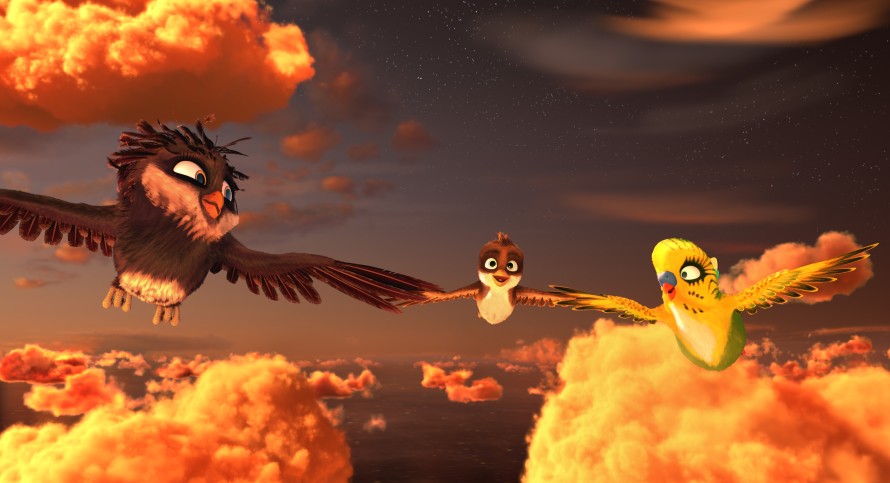
Richard the Stork (Überflieger – Kleine Vögel, großes Geklapper) by Toby Genkel)
The theme of being called to something also plays a role in the Kplus programme. The little sparrow in Richard the Stork (D: Toby Genkel) is convinced that he’s a stork and pulls out all the stops to prove to his adopted stork family that he too can manage to complete the long trip to Africa. The documentary film Becoming Who I Was (D: Chang-Yong Moon, Jin Jeon, Kplus) follows the inner and outer journey of a young boy over the course of eight years. In his village in the North Indian highlands, everyone knows that he was a Buddhist master in a previous life – together with his teacher, he sets out on the long trek back to Tibet to find an appropriate monastery for him.
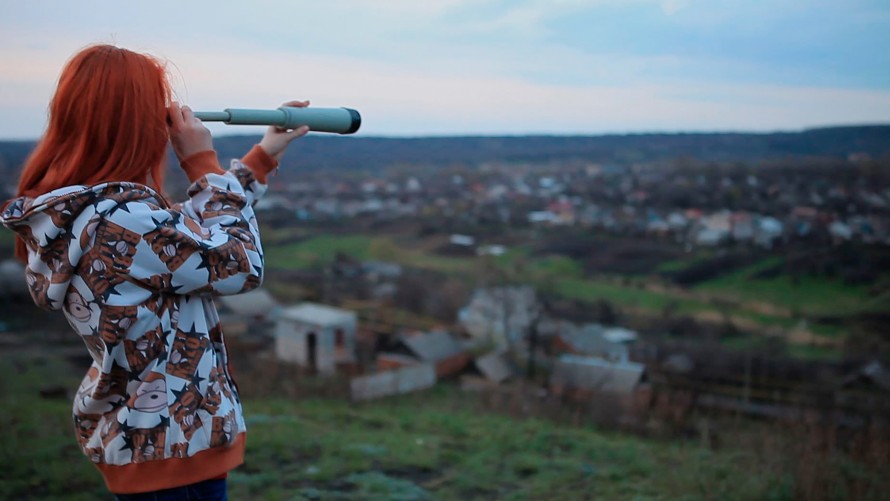
Shkola nomer 3 (School Number 3) by Yelizaveta Smith and Georg Genoux
In the context of the great diversity of cinematic approaches and characteristics, it is not easy to group several films under one common aspect. For the documentary films, the proportion of those that were not made explicitly for a young target group is even higher than it is for the fiction features – and that goes for both the Kplus and 14plus programmes. They are all films that belong on the big screen, although the variety of documentary forms is really particularly striking. The examples already mentioned can be described as personal close-ups that manage at the same time to reflect on some of today’s biggest issues. Such as in Shkola nomer 3 (School Number 3, D: Yelizaveta Smith, Georg Genoux, 14plus), in which thirteen adolescents from Donbass in Eastern Ukraine are in the spotlight. They tell about their everyday lives, about first love and experiences that move them. Even though the war is only mentioned peripherally, this documentary film remains haunting and captivates the viewer with an aesthetic approach characterised by rigorously framed shots.
As the title already indicates, Poi E: The Story of Our Song (D: Tearepa Kahi, 14plus) tells the story of the 1984 pop hit Poi E, the first song in the Maori language to take the charts by storm in New Zealand, a totally unexpected event. The song became a cult classic and helped a whole generation of young Maoris to gain a new sense of self in the process. The film brings together found footage from the 1980s with testimonials from individuals who were there and images of young people today in a highly enjoyable musical experience.
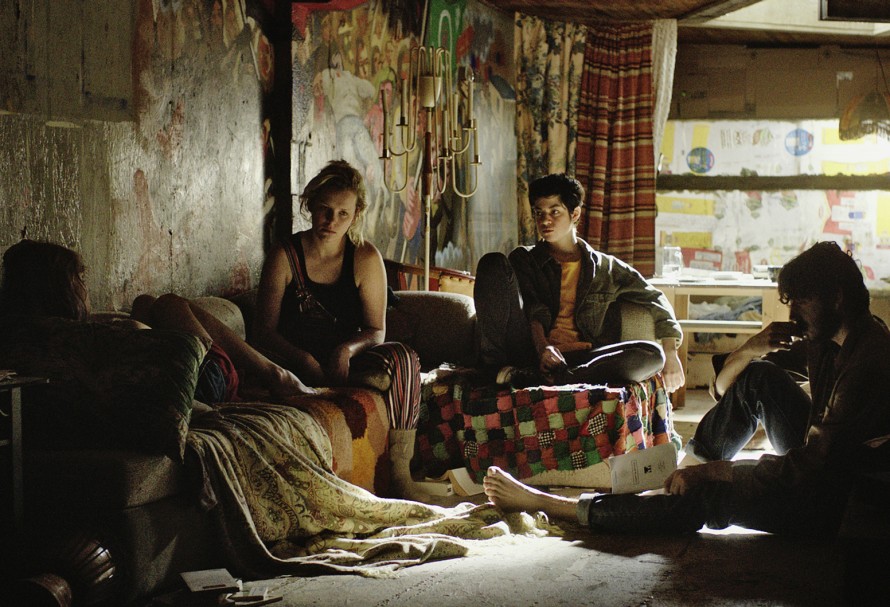
Ceux qui font les révolutions à moitié n'ont fait que se creuser un tombeau by Mathieu Denis and Simon Lavoie
The Subversive, the Expressive and the Mystical
What is the most unusual work in the programme?
Ceux qui font les révolutions à moitié n'ont fait que se creuser un tombeau (Those Who Make Revolution Halfway Only Dig Their Own Graves, D: Mathieu Denis, Simon Lavoie, 14plus, recommended for ages 16 and up) represents a very challenging work both aesthetically and as regards content. Over the course of 183 minutes, fictional film scenes, documentary fragments, performative moments and copious captions are assembled into a visually stunning, non-linear, subversive collage about a group of young rebels in Quebec.
With My Entire High School Sinking into the Sea from the USA, we have a long animated film in the 14plus programme that is bubbling over with visual inventiveness. Director Dash Shaw claims he himself was a nerd at the age of 15, one obsessed with drawing and painting. The dialogue in his disaster film is laid-back and laconic, while the colours are loud and expressive. An absolute joy – and not just for 15-year-old nerds.
For its part, Não devore meu coração! (Don't Swallow My Heart, Alligator Girl!, D: Felipe Bragança) stands out formally from the rest of the 14plus programme through its heavily symbolical nature. The film is a modern Romeo and Juliet story between a Brazilian boy and a mysterious Guaraní girl, who lives on the other side of the Rio Apa, the border river separating Paraguay and Brazil. Her story is driven by the boy’s love. The river becomes a mystical boundary, and in the hazy light of the swamp the two realities blur into one.
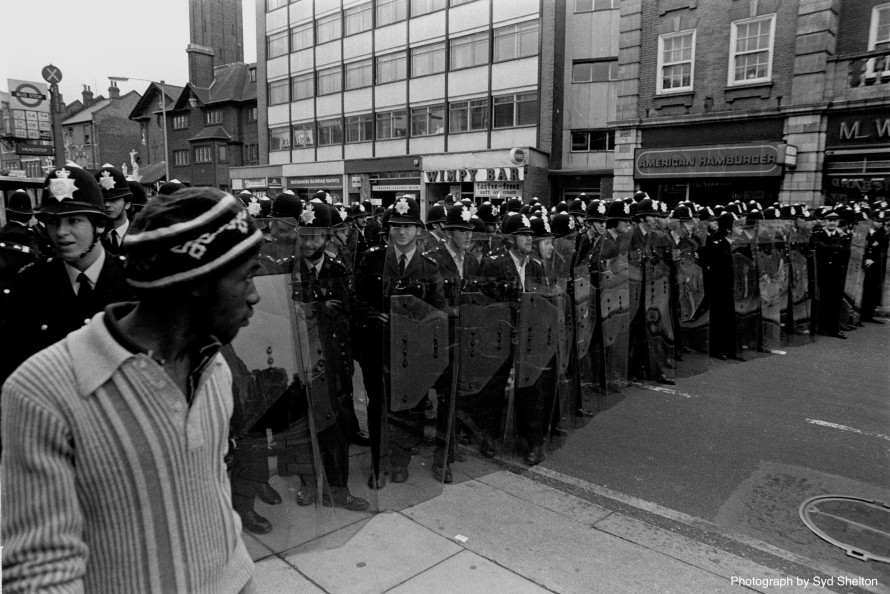
Selected short films
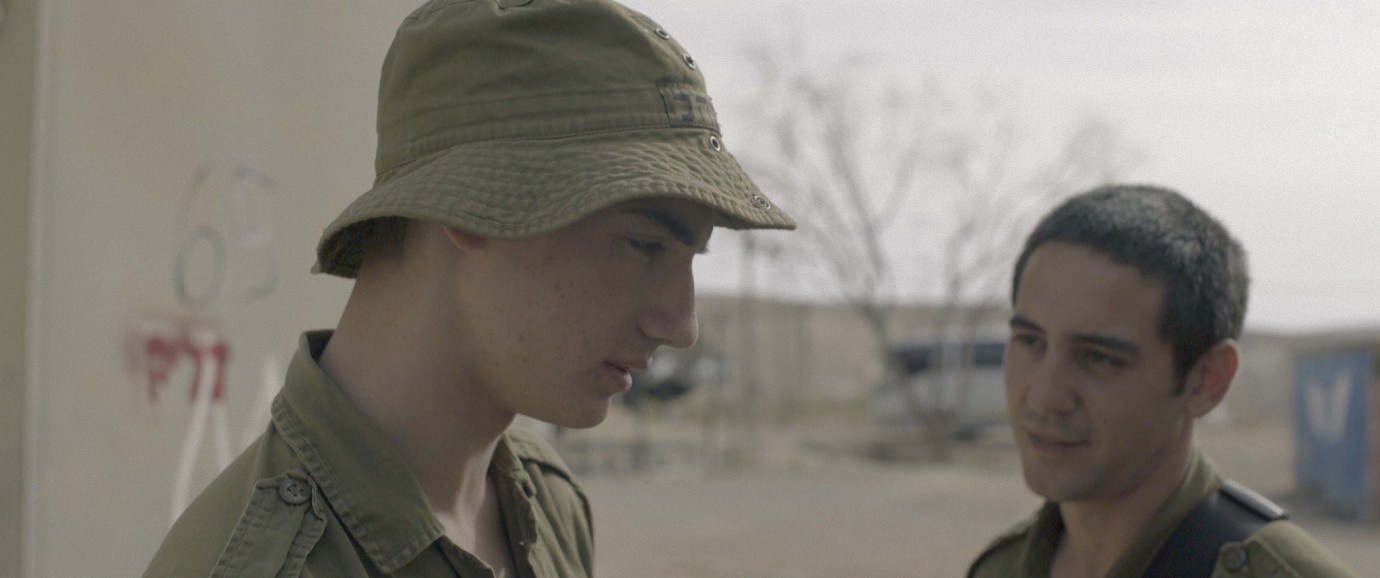
Yuval Jonas, Micha Rozenkier
Sheva Dakot | Seven Minutes by Assaf Machnes
ISR 2016, Generation
© Green Productions / Ran Aviad
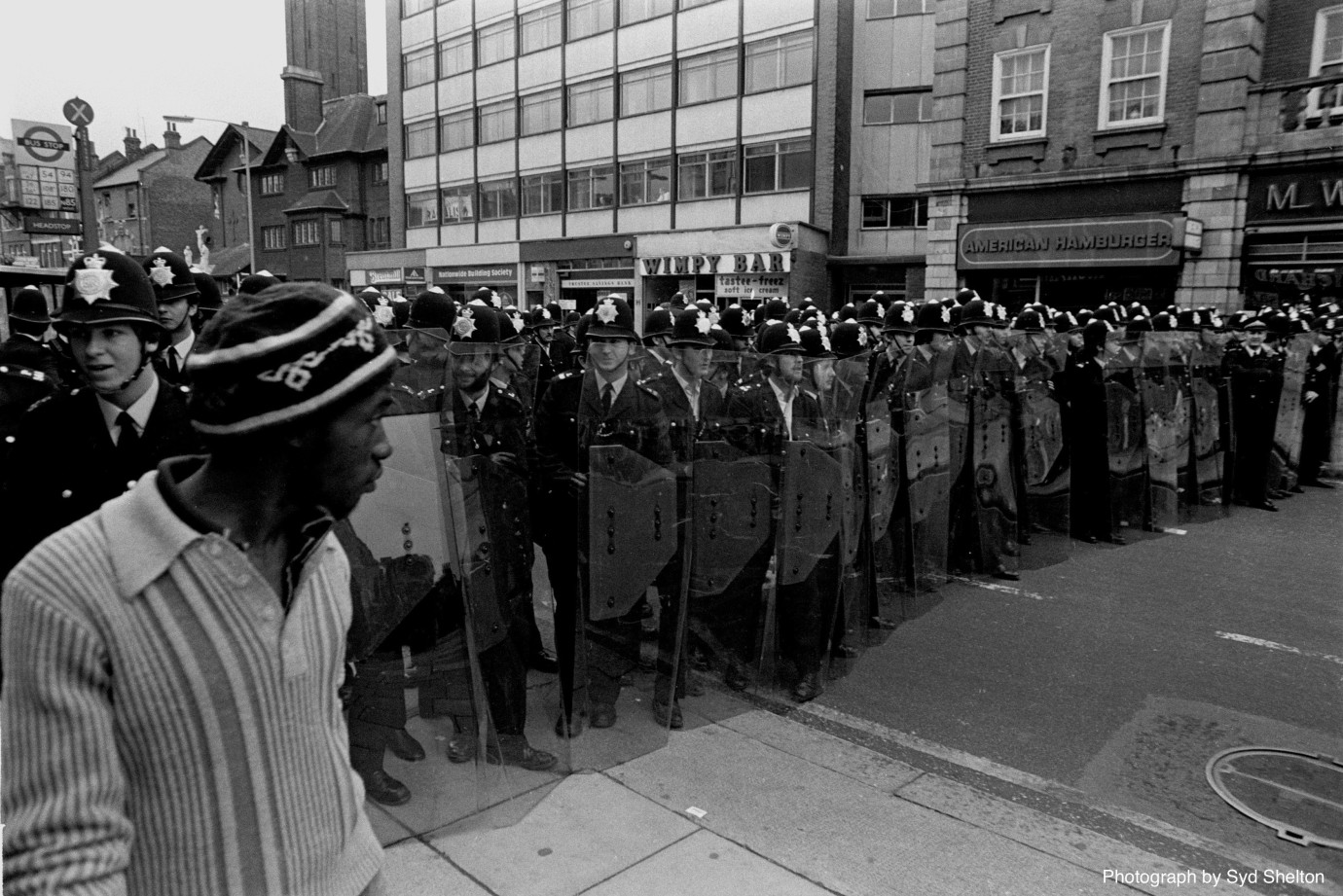
White Riot: London by Rubika Shah
GBR 2016, Generation
© Syd Shelton
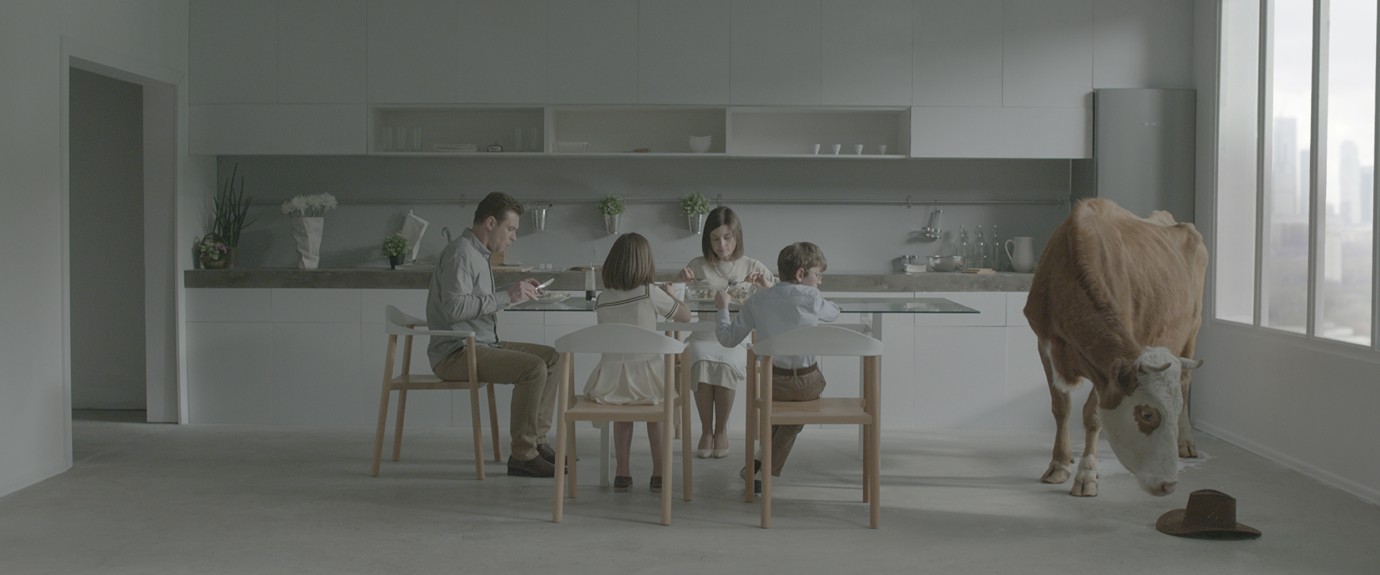
Vitaly Khodin, Yaroslava Bazaeva, Maria Bolonkina, Gleb Orlov, Moorka
Moloko | Milk by Daria Vlasova
RUS/LTU 2017, Generation
© MIMESIS
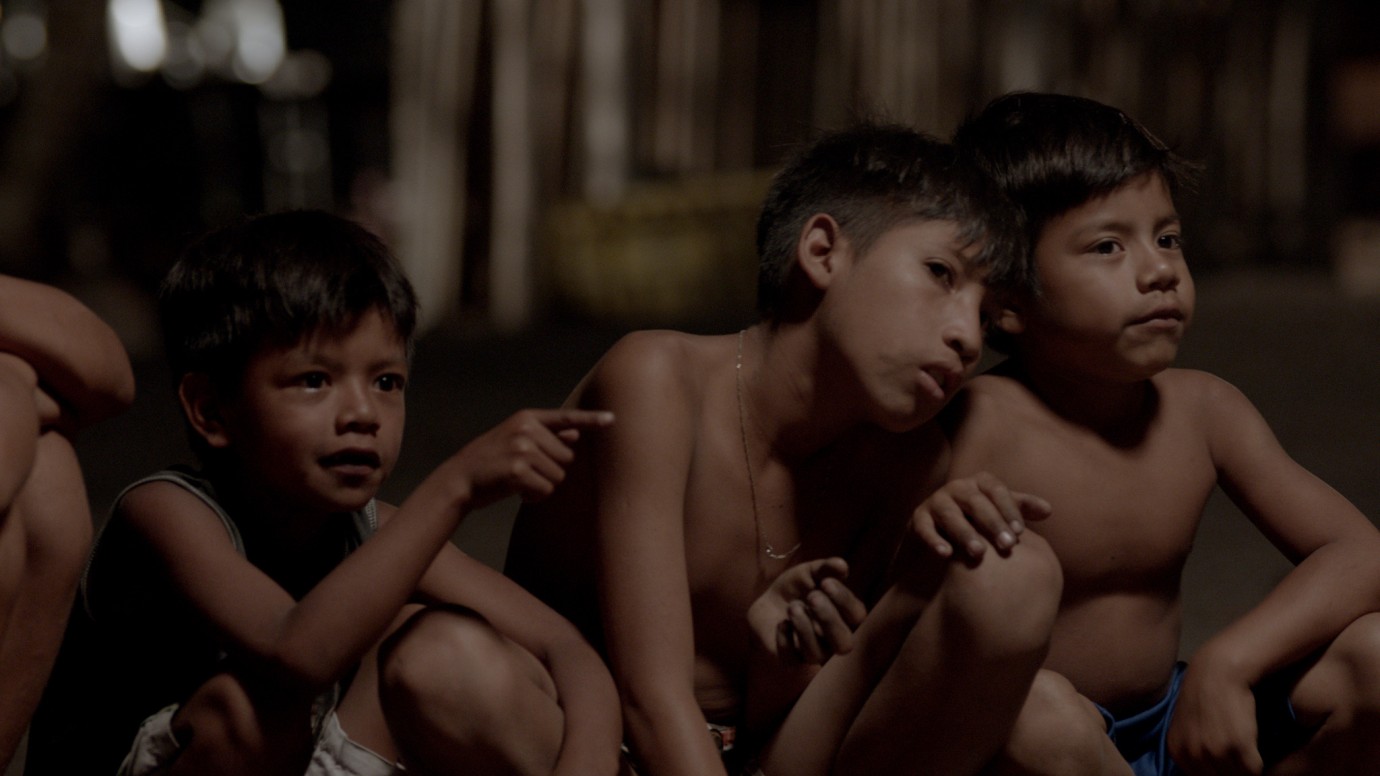
Em busca da terra sem males | In Search of the Land Without Evil | Auf der Suche nach dem Land ohne Böses by Anna Azevedo
BRA 2017, Generation
© HB Filmes
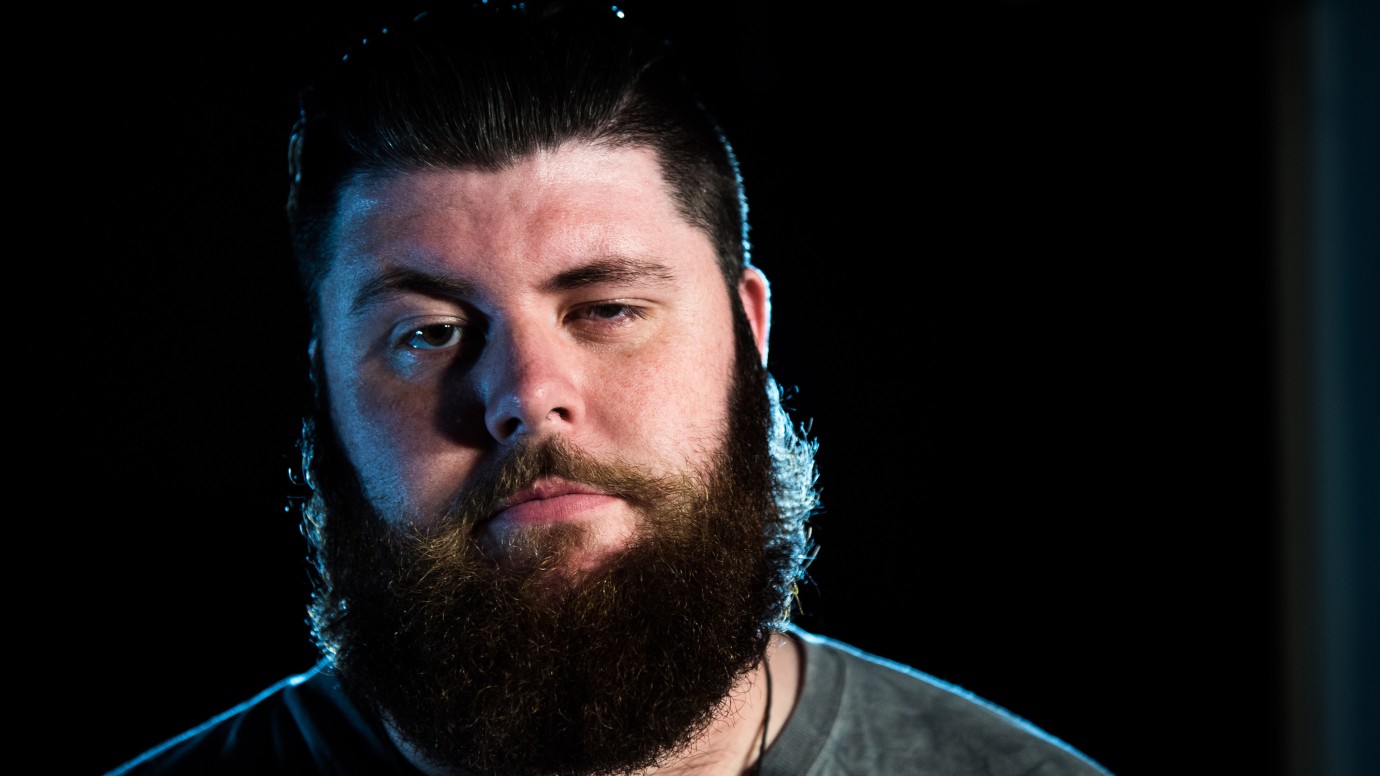
Wolfe by Claire Randall
AUS 2016, Generation
© Lachlan James Morton
I am also very happy to see the great diversity of forms in the short film programmes, which were put together from a total of over 2,000 submissions. Associative collages, as in the documentary film White Riot: London (14plus), which deals with the birth of punk and opens up parallels to the spread of right-wing populism in Europe today; surreal fare like Moloko (Milk, 14plus), in which a cow materialises one morning in a squeaky-clean 14th floor high-rise apartment; everyday observations without commentary as in Em busca da terra sem males (In Search of the Land Without Evil, Kplus), which raises questions about alternative visions of life; mixtures of interview material and animated sketches as in Wolfe (14plus), in which now 24-year-old Nick reflects back on his “schizophrenia”; documentary snapshots such as Sheva Dakot (Seven Minutes, 14plus), which counts down the seven minutes that two young Israeli soldiers have to change clothes and pack their stuff for a long-awaited weekend off – and much, much more.